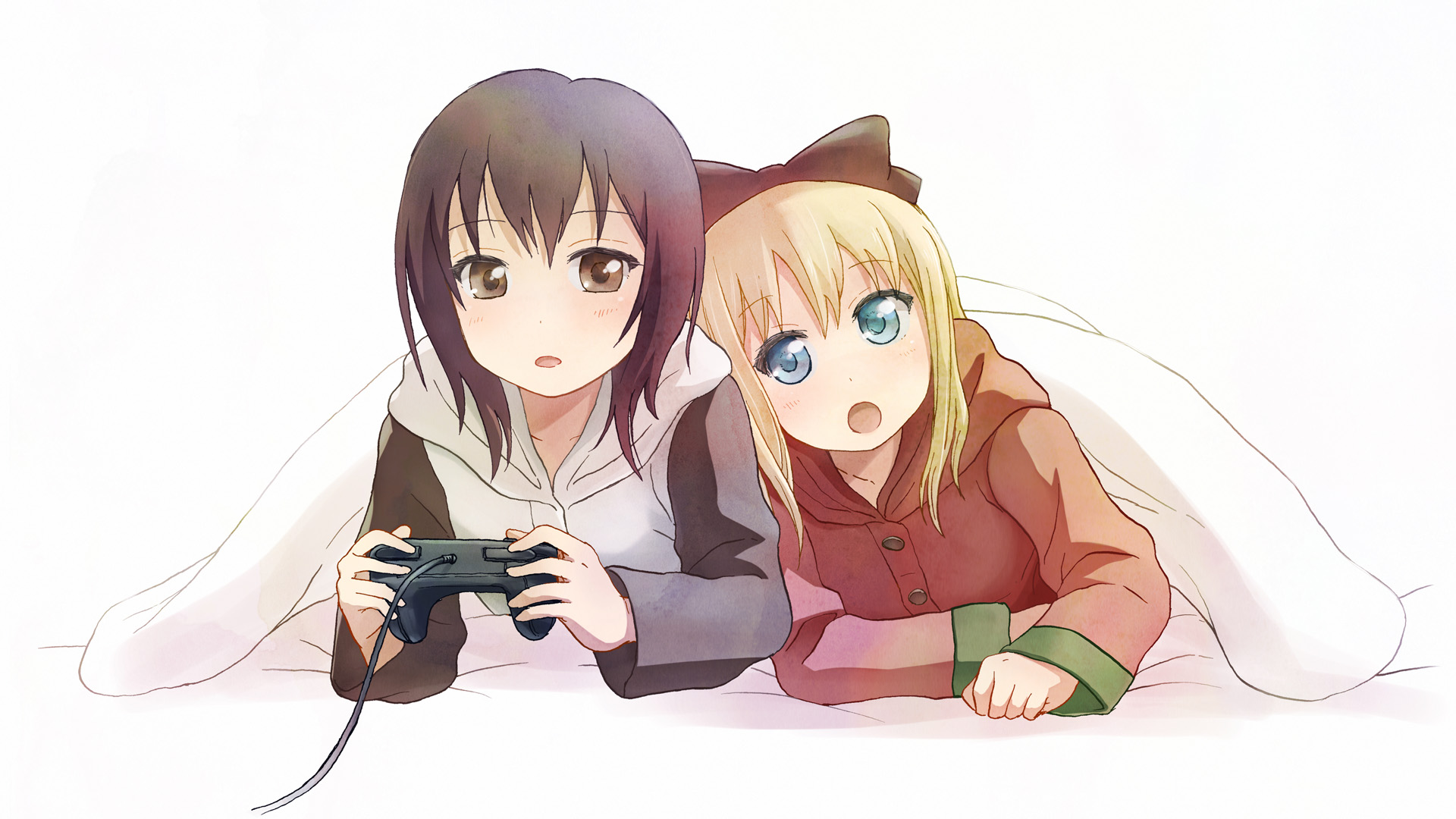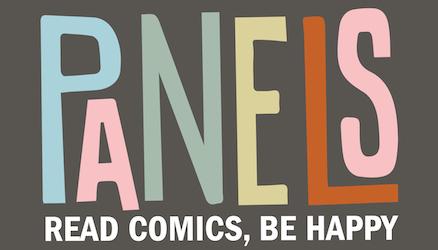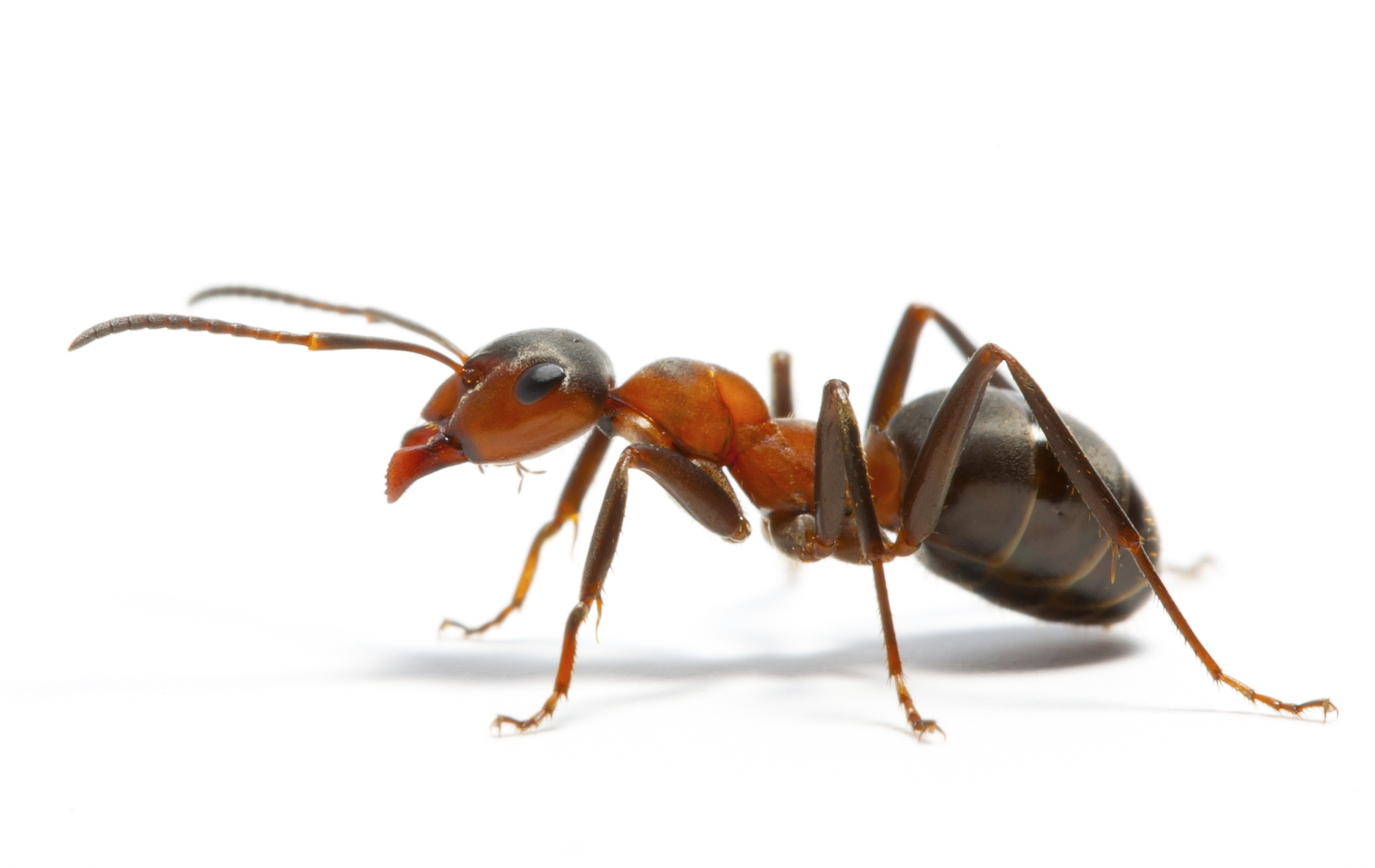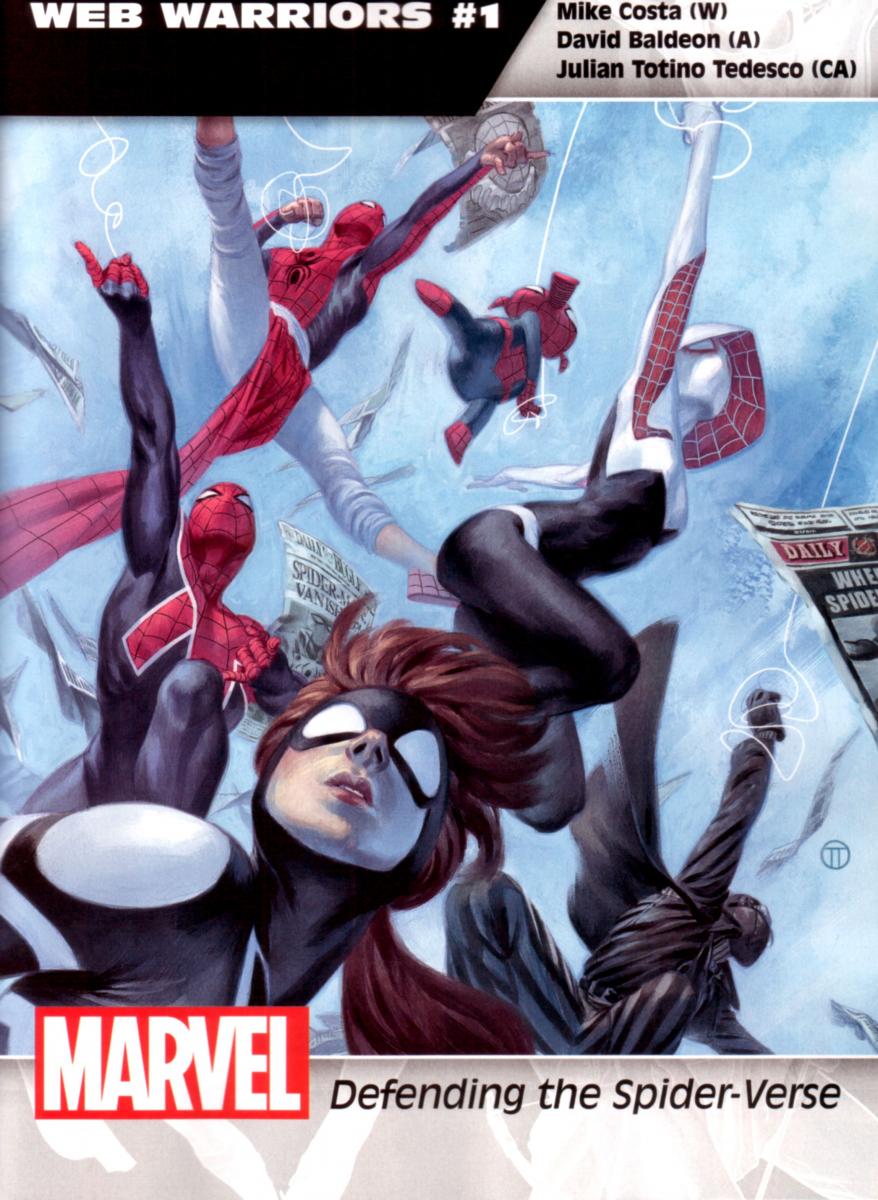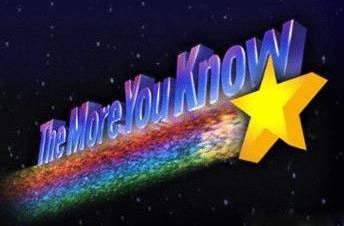EN/SANE World is James Bucky Carter's enclave of English Education (EN) resources as well as a haven for those looking for information on Sequential Art Narratives in Education (SANE).
A Public Service Announcement! ;)

Thursday, December 31, 2015
Happy New Year! Welcome a 2016 Filled With Comics Goodness
Sunday, December 20, 2015
Merry Christmas, 1979-style!
Two-year old me wishes you a happy holiday season via this groundbreaking rap from Kurtis Blow, whom I wouldn't know about for at least another 20 years but would have wanted you to know about had I known about it then. ;)
The rap reminds me of the time I accompanied my father on a trucking trip through New York State. I was in fifth grade, if memory serves. I remember Ithaca, Syracuse, and a town called White Plains (?) or White Falls. I remember a complete white out while we were on the road and a deer jumping in front of the cab so high into the sky it was on level with the 18-wheeler's windshield. Luckily it made it past us! I recall stopping at a shop and getting a brownie almost as big as my head. I remember flipping of someone in a Camaro who almost ran over me. I remember stopping in a drug store and seeing the Todd McFarlane Marvel Poster Book!
Dad purchased a truck-stop cassette tape of Christmas rap songs somewhere along the way, which we listened to for as long as we could before tossing it out the window! We were harsh critics. I don't think Blow's rap was on the tape.
Anyway, happy holidays and Merry Christmas!
Saturday, December 05, 2015
Privileged -- Not Informed -- Perspectives Keep Comics out of Classrooms, Teacher Educators' Considerations
Noting what appears to be less attention being paid to comics and graphic novels at the recent 2015 National Council of Teachers of English, Assembly on Literature for Adolescent of NCTE, and the Literacy Research Association, I have to revisit the reasons why sequential art may be getting pushed back to the periphery of teachers' and teacher educators' social and critical consciousness.
Luckily, current top burner theory and concerns, namely White Privilege, Social Justice, and White Supremacy offer lenses through which to, once again, make a claim as to why this might be the case:
 |
| The light, white, right hand that feeds and starves. |
Around the nation, teachers and teacher educators continue to favor their dominant cultural biases regarding notions of success, quality, and worth. They keep out certain elements such that prevailing discourses and traditions are favored and those with different perspectives remain disenfranchised and under thumb, best seen and not heard -- if acknowledged at all.
Despite all the wonder adding new voices could could add to their classrooms, these teachers maintain the status quo of bigotry and ignorance. Their knapsacks, ironically, are incredibly visible, and very few stand up to them due to the sheer numbers and weight of those who think similarly. Their privilege knows no ends because they privilege one another and can be as radical as they think they are nestled in the safety of their group think.
Miles Myers, Gunther Kress, other New Londerers, Scott McCloud, Theirry Groensteen, Nick Sousanis and so many others have discussed the reasons why, but has anyone called the reason comics and other visual forms remain on the outside looking in of so man English teachers' and English educators' classes?
Let it be so named: The privilege, bigotry and ignorance is the result of :
Write Privilege and Write Supremacy.
Sunday, November 08, 2015
Julian Peters' Comic Poetry Adaptation of "The Love Song of J. Alfred Prufrock" is a Beauty to Behold...
... and you can view it in its entirety here! It's not to be missed.
Wednesday, November 04, 2015
The Panels Guide to Manga Terminology
Who can't use a nifty guide to vocabulary associated with Manga? Surely no one in education or literacy studies can afford not to have access to one, especially given the monstrous sales numbers of Attack on Titan recently. Some even suggest that when it comes to American comics sales, Manga is the dominating force.
Luckily the folks at Panels have created a primer. See their Guide to Essential Manga Terminology here.
Tuesday, November 03, 2015
Hey, Hey!
Hi there, readers. You may have noticed I don't update here as often as I have in the past. The blog's not dead. When I read a comic or graphic novel about which I think the public needs to know more, I'll post a review. In the meantime, here are ways to keep up with my work:
1. See a version of my online vita here: http://virginia.academia.edu/JamesBuckyCarter
2. I have a Google Scholar profile now! You should be able to access it at this address: https://scholar.google.com/citations?user=v_YyMagAAAAJ&hl=en&oi=ao. According to information gleaned from Google Scholar on November 3, 2015, my works have been cited at least 270 times, and I have an h-index of 8 and an i10-index of 7.
3. I'm scheduled as featured speaker at 2016's Michigan Reading Association. In Detroit, I'll give a rundown of where I see the next decade of comics evolution and how teachers can tap into growing and emergent trends. For more information, visit http://michiganreading.org/conferences/annual-conference/2016speakers.
4. I'm still writing! I have work with ALAN's "Under the Radar" team in development, as well as entries for edited collections from academic presses. For one such project, I was deemed a "pioneering figure" regarding comics and education. That was quite an honor.
5. SANEjournal is still going strong. My latest peer-reviewed article, "PIM Pedagogy," was downloaded 17 times in September and had views from across the globe. Richard Graham is the managing editor of the journal now, and his first issue went live earlier this fall. SANEjournal now has four issues worth of research and practitioner-based texts, lesson plans, rationales, and more on the subject of comics and education.
Now for some miscellaneous comics considerations en mi cabeza, presented in stream of consciousness for your bemusement:
Saga still rocks; Sex Criminals is fun reading; G. Willow Wilson's work on Ms. Marvel is awesome but G-Force is over-rated; Gene Yang is amazing and his Secret Coders is such a great idea for a book. I'm puzzled that Nimona is getting as much critical attention as it has based on its quality, which is, well, "meh," in my opinion. I'd hoped reading Stevenson, Ellis, Watters and Allen's Lumberjanes would reveal that Nimona was a working space for a new comics writer to hone their skills before nailing it with their next efforts, but I've read enough summer camp comics already. I do feel Lumberjanes has merited the positive attention it has received, though. Bitch Planet continues to challenge me, engage me and enrage me (Well, consternate me, anyway). Writers and critics need to let a series actually debut before they critique it for shortfalls. Also, it would be nice if writers would address a character's entire history and mediated representations before making claims about race, gender, or privilege within their articles -- or at the very least acknowledge the narrowed focus of their articles. Squirrel Girl is a fun, fun series, though I didn't like seeing it get a new #1 so soon after debuting. Raina Telgemeier is a full-fledged phenomenon now, as is Nick Sousanis. All comics are flawed in some way, as are all texts, and this is good news to scholars, as it gives us something to talk about. I'm eager to see fan reaction to the new comics featuring Red Wolf and Spider-Woman. I miss the Jaime Reyes Blue Beetle being in our critical consciousness. I still want to make more comics. I'm about to start reading Phoebe Gloeckner's The Diary of a Teenage Girl, the one with the "Now a Major Motion Picture" label on its cover. First Second seems to have become more corporate in attitude and marketing recently. I am curious to see how Preacher works as a TV series. I want to want to watch Supergirl, but I didn't watch Smallville, Gotham, Arrow or The Flash, so I probably won't. As comics readership demographics shift, keep an eye on who appears, reappears, and (particularly) disappears in their pages. Doing so will help you see if we're experiencing a more open medium or one happy to replace old powered discourses with new ones. Swamp Thing is still DC's most interesting character, to me. Most floppy comics that I'm not reading but would like to read look like they'd be better read in trade paperback or graphic novel form. Definitely, I can see generational preferences emerge regarding what young people like in comics versus what I like in them, My oldest son is on a Doug TenNapel kick. I'm still hip to Derf Backderf, Nate Powell, and Ed Piskor. Have any comics works of the last five year had as much power as David Mazzucchelli's Asterious Polpy or Jaime Hernandez' The Love Bunglers? Maybe the Tamaki's This One Summer. Maybe. Otherwise, not that I've seen. I need to read more grown-up comics, though. When it comes to comics-and-literacy scholarship, I often feel overlooked, discarded and disrespected within the education and literacy communities. A good job would fix that for me, though, I'm sure. I picked up the first issue of Gene Yang's Superman but haven't read any other issues in the series. The news of a Dark Knight III intrigues me more than excites me.
1. See a version of my online vita here: http://virginia.academia.edu/JamesBuckyCarter
2. I have a Google Scholar profile now! You should be able to access it at this address: https://scholar.google.com/citations?user=v_YyMagAAAAJ&hl=en&oi=ao. According to information gleaned from Google Scholar on November 3, 2015, my works have been cited at least 270 times, and I have an h-index of 8 and an i10-index of 7.
 |
| The latest *SANE* features cover art by Gene Kannenberg, Jr. |
4. I'm still writing! I have work with ALAN's "Under the Radar" team in development, as well as entries for edited collections from academic presses. For one such project, I was deemed a "pioneering figure" regarding comics and education. That was quite an honor.
5. SANEjournal is still going strong. My latest peer-reviewed article, "PIM Pedagogy," was downloaded 17 times in September and had views from across the globe. Richard Graham is the managing editor of the journal now, and his first issue went live earlier this fall. SANEjournal now has four issues worth of research and practitioner-based texts, lesson plans, rationales, and more on the subject of comics and education.
Now for some miscellaneous comics considerations en mi cabeza, presented in stream of consciousness for your bemusement:
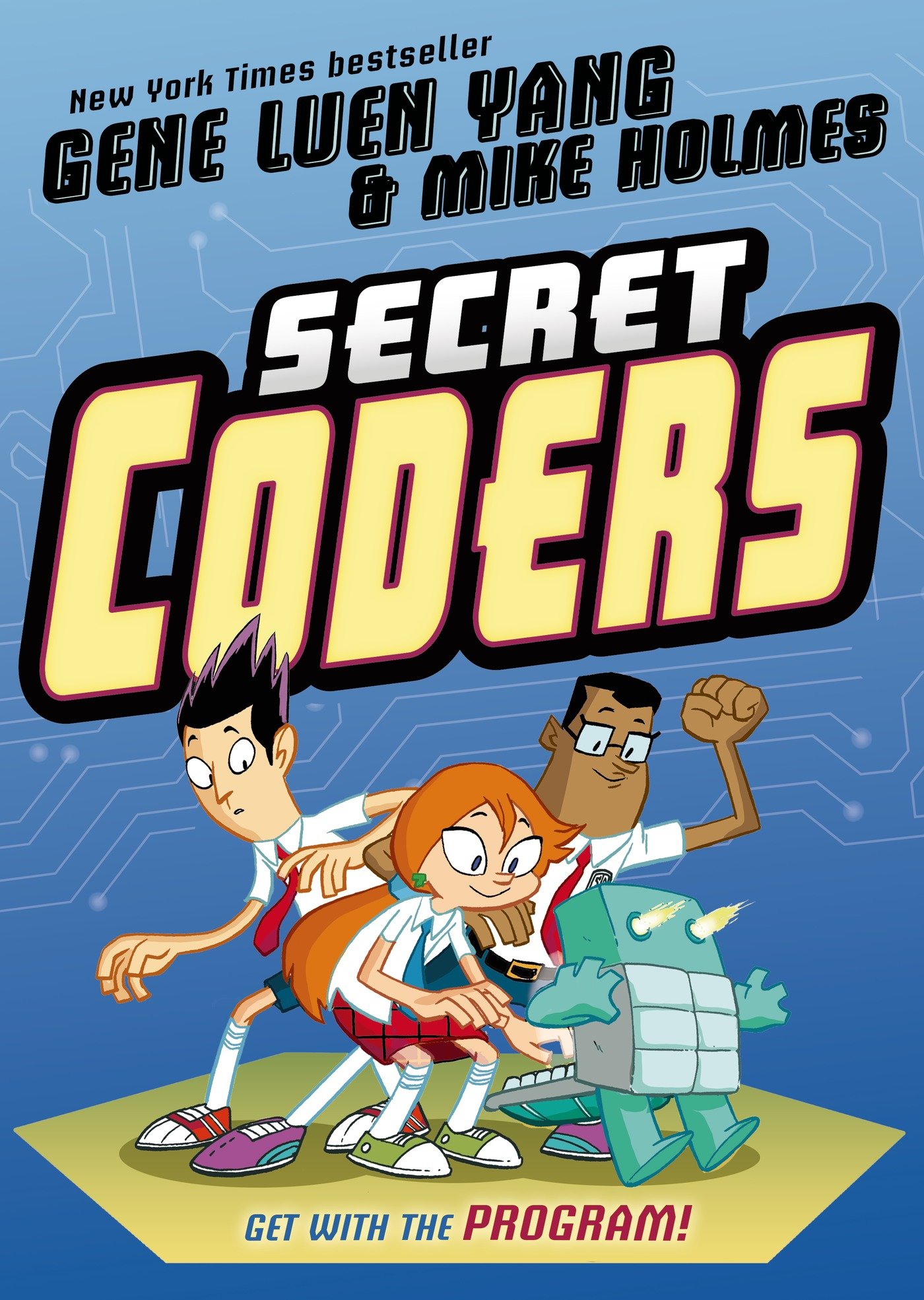 |
| Learn to code! |
 |
| Squirrel Girl has an entertaining set of eponymous titles and the best catch phrase ever. |
Monday, August 03, 2015
An Alternative to Bags and Boards
I just read an article from Panels contributor Christine Hoxmeier about an alternative method of storing comics. I won't say too much except I thought the method and article were intriguing enough to post about it here. Click to see what I mean. Here's a teaser image:
Tuesday, July 21, 2015
Rest Well, Tom Moore
News outlets report that Tom Moore, an influential comics artist known for his work in Archie, has passed in El Paso, Texas.
Mr. Moore, who worked on Archie comics for three decades, was among the guests an "El Paso in the Comics" event I organized while I worked at UTEP. I learned about his presence in the area through an anonymous tip.
I remember him as collegial, humble, and eager to speak to any of the other comics creators and event attendees.
While my time with him was brief, he left an impression, and I join his family and the comics community in mourning his loss. Mr. Moore was 86.
Mr. Moore, who worked on Archie comics for three decades, was among the guests an "El Paso in the Comics" event I organized while I worked at UTEP. I learned about his presence in the area through an anonymous tip.
I remember him as collegial, humble, and eager to speak to any of the other comics creators and event attendees.
While my time with him was brief, he left an impression, and I join his family and the comics community in mourning his loss. Mr. Moore was 86.
Labels:
Archie,
El Paso,
El Paso in the Comics,
EPIC,
Tom Moore
Saturday, July 18, 2015
The Quick n' Dirty: An Underdeveloped Review of Ant-Man
Low-key, quiet, and with a simplified plot even for a superhero film, Ant-Man retains a balance of action and (mostly) family-friendly charm not seen since the first Fantastic Four release. Like that picture, the movie invokes both joy and tedium, but with enough charisma and character to make the most hardened comics film critic accept it like a goofy, well-meaning best friend -- with a pat on the back, a "Ruddy" smile, and a welcoming embrace. "Come over here and let me hug you, Ant-Man. I love you despite your flaws."
Saturday, July 11, 2015
A "Way Too Early" Look at 2016's Eisner Award Winners
 |
| Can the emergence of feminine forces in comics help a series like Spider-Woman become an award-winning hit? Read on to find out! |
Scott McCloud's The Sculptor, a study on the life of exceptionally creative people and what it must be to have the urge to make and the compulsion and Godly skill to make art imitate one's visions of life and life imitate one's visions of art -- yet remain a fully fallible human restricted by the realities and fates of non-deity living -- is a sure-fire choice. Having garnered critical and commercial praise, expect this tome from First Second to be up for Best Graphic Album New. McCloud's reputation and place as an American Master will cement even more due to this great work, nomination or no.
In the categories of Best Academic Work and/or Best Comics-Related Book, expect to Nick Sousanis's Harvard University Press release Unflattening to make the ballot and get the win. With excellent, ongoing press and a network of fans spanning academic fields and popular culture audiences, already Unflattening has made an impact on hundreds and that number may reach tens of thousands by the time the ballots are announced. Part Understanding Comics, part Ways of Seeing, part Literary Theory: An Anthology, this book -- marketed as a comic dissertation (and it is in so much as it is a long essay on a particular set of subjects, but do not mistake it for the same work Sousanis would have submitted as a dissertation for his recent doctorate) -- asks readers to reconsider their conceptualizations of knowledge and what counts as serious intellectual representations of such. Inspiring and eye-opening -- mind- and opinion-altering, even -- especially to those who need to see a book of comics theory from an Ivy League press and an Ivy League-educated author -- Unflattening's following and success at expanding the minds of intellectuals and casual scholars alike make it a sure-fire awards winner. Expect second and third printings to wear some sort of medallion, if not the Eisner.
Bitch Planet is a lock for a Best New Series nomination and would make a controversial non-win
unless another title debuts with as much interest and pinache as DeConnick and De Landro's not-quite-monthly floppy from Image. With a loyal, championing (maybe even defensive?) fan following, this title's mega-splash debut is enough to get it on the watch list, and while the series is still gaining steam and finding its flow, nothing short of a narrative meltdown will keep Bitch Planet from appearing on the ballots. Not recognizing this self-aware ironic female prison exploitation trope buster would make for judges who were non-compliant to popular opinion.
I have a hunch some assortment of Spider-Man titles will be in the hunt as well and will, along with Ms. Marvel, comprise most of Marvel's representation on the ballots. Whether the categories will honor Spidey-centric writer, artist, or series I can't prognosticate. Will Miles Morales or Spider-Gwen take center stage, or will an off-center, quirky "super-powered yet still domestic"-themed series featuring a very pregnant Spider-Woman fill the void left as series like Matt Fraction's Hawkeye and the fan-favorite She-Hulk fade from public consciousness? Could Silk be a dark horse beak-out series or character? Maybe the new group book will prove an Eisner winner. G. Willow Wilson deserves the recognition an Eisner would bring, but now that Ms. Marvel is not a new series, her best bet might be the very tough Best Writer category. Another prediction? The great-in-concept but tepid-so-far A-Force will not garner awards consideration, nor will a majority of contemporary Marvel properties beyond the titles mentioned.
Marvel will still have more representation on the ballot than DC, though, who will have to hope Gene Yang and John Romita Jr's Superman run continues to bring the heat.
Expect current sure-things like Saga and its creators to make at least one category, and expect a return of The Walking Dead, maybe in compendium form (?), as well. I've a hunch Sex Criminals will find a way back into the ballots too, and that we'll see a push toward more literary, adult-themed comics and graphic novels to offset -- but in no way to invalidate -- this year's crowded slate of winners cross-associated with Young Adult Literature. If the Hernandez brothers catch fire with a new work or a chapter of Love & Rockets with the same meteoric impact as The Love Bunglers -- and having studied their cycles of work, they're due -- I expect Fantagraphics, Drawn + Quarterly, and Image to make the strongest hauls this time next year.
As with the sports columns, though, such columns as this serve as fun speculation more than anything else at this point in the new awards year. Let's meet in just under 400 days to revisit my predictions, though, eh?
2015 Eisner Awards Winners Announced!
Click *here* to see which creators and titles won. Though, while awards are nice, these accolades do not mean the other nominees and many others not nominated aren't doing equally awesome work.
Thursday, July 09, 2015
One of Nation's Largest Literacy Events Happening This Week! San Diego Comic Con 2015
Memories of my last Comic-Con from 2012 loom large. Attending this event, which, this year, will most-likely attract over 100,000 enthusiastic readers and viewers of popular culture, is an astounding experience. Educators at all levels should recognize comic conventions for what they are: Literacy events for reading communities.
Seriously, you've never seen a deep reader if you've never experienced a conversation about what that one artifact in the corner of Uncanny X-Men #238 might signify. You've never met an informed, critical reader like the fangirl who can tell you every reason Carol Danvers rocks and exactly how creators have mishandled her character throughout the years and exactly how Kelly Sue DeConnick got her right.
Here's to San Diego Comic Con, all comics conventions, and the eager, critical, engaged, smart, savvy readers and fans who make them authentic literacy events worthy of educators' admiration and respect.
Seriously, you've never seen a deep reader if you've never experienced a conversation about what that one artifact in the corner of Uncanny X-Men #238 might signify. You've never met an informed, critical reader like the fangirl who can tell you every reason Carol Danvers rocks and exactly how creators have mishandled her character throughout the years and exactly how Kelly Sue DeConnick got her right.
 |
| Me on my way to SDCC 2012, during which I spent some of my time cosplaying as The Thing. |
Here's to San Diego Comic Con, all comics conventions, and the eager, critical, engaged, smart, savvy readers and fans who make them authentic literacy events worthy of educators' admiration and respect.
Friday, May 08, 2015
See My Talk about Batman and Superman for WSU's Global Campus (2013)
Click here to see me talk about the mythoi of Batman and Superman for the Washington State University Global Campus.
Thursday, April 02, 2015
Comics Resources Via Academia.EDU
Hi, all. Just a quick note to inform you I have created a page on Academia.EDU where I have uploaded versions of some of my more-formal published writings on comics and literacy. To access the links and PDF's, just visit http://www.virginia.academia.edu/JamesBuckyCarter.
I have work from previous projects and even a pre-publication draft or two of other resources. While there is overlap with critical theory and Young Adult Literature, most of the work focuses on comics and teaching. Lesson plans, articles, columns and even links to book previews await!
I have work from previous projects and even a pre-publication draft or two of other resources. While there is overlap with critical theory and Young Adult Literature, most of the work focuses on comics and teaching. Lesson plans, articles, columns and even links to book previews await!
Thursday, February 05, 2015
Review of Dalrymple's *The Wrenchies*
One of the tropes of Chris Claremont's run on the Uncanny X-Men was the "fever dream," a narrative which took a character or characters to esoteric, often frightful depths of soul searching and offered events which a reader was never sure were real or imaginary, the reality or possible realities or real alternate realities. Reading Farel Dalrymple's The Wrenchies feels like one of Claremont's fever dream arcs. Indeed, many of the main characters of the book are teen fighters, some with superpowers, who are described as the best at what they do. Some characters even seem to be visual homages to Marvel's merry mutants, especially in their punk or "Days of Future Past" days. Like Wolverine, they're the best at what they do...
And what they do is...serve some nebulous purpose which seems to be a commentary on comics and the creative process itself. Sherwood, a leading character, is a comics artist who created a comic book called The Wrenchies, which is discovered by another band of gifted, down-on-their-luck, roving, fighting youngsters, which calls itself the Wrenchies after that comic. This takes place in the graphic novel by the same name we are reading.
Meta-meta-meta-meta? Who knows.
Eventually, members of both Wrenchies teams and a kid who seems to inhabit the same "base" universe as Wrenchies creator Sherwood team up to save a world where kids are eventually killed (?)/transformed (?) by evil beings like zombies, wizards, and shadowsmen. The Wrenchies' goal? Kill the source of the evil, Sherwood himself.
I see evidence of an author working through issues associated with Plato's cave allegory, existentialist angst, Freudian sublimation and Jungian concepts, but the book often seems as much a plot hodgepodge as it does a critical one. Dalrymple isn't just playing through multiliniarity in comics narratives; he's toying with the concept of a single, clear-cut driving narrative itself.
Make no mistake, the book is gorgeous. Dalrymple's visual detail and storytelling are as exciting and fresh as they've ever been, even in muted palettes, and the arcane, weird vibe of his previous work is intact, even if often the images are grotesque and violent. Characters like Hollis and Scientist are easy to like. Motivations are endearing and piteous. But the book feels tangled, a knot of meaning and reflection perhaps too abstruse to appreciate, a text as confused as it is confusing.
Still, if you're a fan of the recherché and post-apocalyptic sensations and don't mind a read where you're probably never going to have a full sense of what is going on or even why the narrative exists (as in what deep, dark need it served for the author), The Wrenchies offers a twenty-side die of a read, the graphic novel as icosahedron. Revel in its mysteries, teases and taunts, but don't expect easy answers in terms of plot or presence.
And what they do is...serve some nebulous purpose which seems to be a commentary on comics and the creative process itself. Sherwood, a leading character, is a comics artist who created a comic book called The Wrenchies, which is discovered by another band of gifted, down-on-their-luck, roving, fighting youngsters, which calls itself the Wrenchies after that comic. This takes place in the graphic novel by the same name we are reading.
Meta-meta-meta-meta? Who knows.
Eventually, members of both Wrenchies teams and a kid who seems to inhabit the same "base" universe as Wrenchies creator Sherwood team up to save a world where kids are eventually killed (?)/transformed (?) by evil beings like zombies, wizards, and shadowsmen. The Wrenchies' goal? Kill the source of the evil, Sherwood himself.
I see evidence of an author working through issues associated with Plato's cave allegory, existentialist angst, Freudian sublimation and Jungian concepts, but the book often seems as much a plot hodgepodge as it does a critical one. Dalrymple isn't just playing through multiliniarity in comics narratives; he's toying with the concept of a single, clear-cut driving narrative itself.
Make no mistake, the book is gorgeous. Dalrymple's visual detail and storytelling are as exciting and fresh as they've ever been, even in muted palettes, and the arcane, weird vibe of his previous work is intact, even if often the images are grotesque and violent. Characters like Hollis and Scientist are easy to like. Motivations are endearing and piteous. But the book feels tangled, a knot of meaning and reflection perhaps too abstruse to appreciate, a text as confused as it is confusing.
Still, if you're a fan of the recherché and post-apocalyptic sensations and don't mind a read where you're probably never going to have a full sense of what is going on or even why the narrative exists (as in what deep, dark need it served for the author), The Wrenchies offers a twenty-side die of a read, the graphic novel as icosahedron. Revel in its mysteries, teases and taunts, but don't expect easy answers in terms of plot or presence.
Tuesday, February 03, 2015
Review of Tamaki & Tamaki's *This One Summer*
Nothing nestles one out of their plans to review a book like learning it just won a Caldecott and a Printz, but that's what happened with me and This One Summer, a 2014 release from Jillian Tamaki and Mariko Tamaki, who some may remember from their 2008 graphic novel Skim.
I started reading This One Summer months ago. The book details a particularly eventful -- in a subdued sort of way -- family vacation to Awago Beach for young Rose, a teenager teetering between liking girlish joys and being thrilled and titillatingly confused by the provocativeness of dabbling in more adult realities, some of which feel like confronting an adulterated abyss and others which feel like the pangs of pubescence. Rose is a domestic detective eager to place together clues about her family life and the lives she might want, and Awago Beach is her beat to canvas.
As she grows weary of her parents' bickering and emotional isolation from each other, Rose finds some comfort (and some vexing too) in her younger friend Windy, who provides a vehicle for reflecting on the word of girlhood versus a new, more aware existence where sex is real, boys are...?, mother nature's a bitch (and named as such), and just getting by alive, much less well, can seem like the greatest of successes.
But as much as I enjoyed the story and worried alongside Rose about what exactly was up with her despondent mother, the thing that kept me from finishing the book for so long, kept me hoarding it to myself, is its mastery of the comics form. I wanted to keep it to myself.
This One Summer offers a low-key, domestic plot which manages to tap into the universals of living and growing, so it is never boring even though its topics are mundane, but ohmygoodnesstheART!
The Tamakis know their comics craft, and they offer us a mastery of panel work and emanata as not just story framing but story telling like few graphic novelists I've seen. They are in complete control of what comics making affords them and utilize unique elements of sequential art so adeptly I'm not surprised the honors have rolled in. I couldn't keep this book to myself if I tried. Someone was bound to recognize its brilliance. What gets me as someone who has metacognitive awareness of comics' affordances and applies it to readings, though, is that the plot and those elements so impressively used are never at odds. I never felt so impressed by the artistry that it took me out of the story. The story is the artistry.
Panel work can seem banal, for example. Comics are always framed -- by readers, by pages, and by cells or panels within the page. Even open panels with full bleed still reside within the space of the page. But the Tamakis show even the basic elements of comics can be art, not just artifice.
In one panel, for example, Rose holds up a jellied candy, peering through it and noting the distorted image of reality it offers, a chaotic frame within the frame which creates for the reader the experience of seeing the physical real as it is, as it could be, and as it is comprehended in Rose's mind.
A series of panels in which Rose looks through the slits of a high wooden fence into the yard of local, working-class teens offer another amazing bit of formal mastery. Again, the scene works to give Rose a glimpse of another lifestyle or realism, one more grown-up than she's used to. The vertical, rectangular slits in the fence are already bordered by traditional comics panels but also become comics panels, and the angle work -- another strength of the book -- creates a dual perspective and multi-framing effect which draws the reader into Rose's psyche while also helping us experience her angst, excitement and nervousness about noting worlds beyond her own lived experiences. It's not just the plot, but the form which snags the audience.
As well, the creators spin onomatopoeia and diegetic and nondiegetic sound into high art. In one panel, the word "slut" weighs heavily on Rose's mind and intermingles with her physical surroundings to replace the sound of walking on crunching leaves. When Windy practices inhaling and exhaling, her breath has body.
When Windy and Rose listen to tunes, the music, visually represented as notes in the air -- not a new trick, but never one so accomplished as it is herein (seriously, Schroeder, if you saw how well music was expressed in this comic, you'd feel the full weight of working for Peanuts!) -- seem tangible, movable, customizable, even, as if the air itself becomes a workshop for creation and expression. When Rose swims and we need to feel the depth of the water, we are placed half-submerged behind treading Rose, and the panels are long and horizontal. When space itself becomes daunting or dangerous, splash pages full of ink help readers see when space itself can become daunting or dangerous, and every single element, from line work to angling to panel work to use of emanata and onomatopoeia, seems essential.
And so they are.
The Printz and the Caldecott and whatever other awards are coming don't make This One Summer a masterpiece, of course, and I do wonder if folks have gotten so keen to the comics scene that they are aware of all the artistic work going on in the book or just sort of "felt" its specialness without being able to note the formal command at work. The book would be a magnum opus of comics art regardless. I am sure it will be studied and explicated for years to come. It's a true exemplar. I suppose the book is a credit to the success of comics as a medium which has full respect among many within the literati now. But award recognition alone doesn't adequately describe how rare and special is This One Summer.
I started reading This One Summer months ago. The book details a particularly eventful -- in a subdued sort of way -- family vacation to Awago Beach for young Rose, a teenager teetering between liking girlish joys and being thrilled and titillatingly confused by the provocativeness of dabbling in more adult realities, some of which feel like confronting an adulterated abyss and others which feel like the pangs of pubescence. Rose is a domestic detective eager to place together clues about her family life and the lives she might want, and Awago Beach is her beat to canvas.
As she grows weary of her parents' bickering and emotional isolation from each other, Rose finds some comfort (and some vexing too) in her younger friend Windy, who provides a vehicle for reflecting on the word of girlhood versus a new, more aware existence where sex is real, boys are...?, mother nature's a bitch (and named as such), and just getting by alive, much less well, can seem like the greatest of successes.
But as much as I enjoyed the story and worried alongside Rose about what exactly was up with her despondent mother, the thing that kept me from finishing the book for so long, kept me hoarding it to myself, is its mastery of the comics form. I wanted to keep it to myself.
This One Summer offers a low-key, domestic plot which manages to tap into the universals of living and growing, so it is never boring even though its topics are mundane, but ohmygoodnesstheART!
The Tamakis know their comics craft, and they offer us a mastery of panel work and emanata as not just story framing but story telling like few graphic novelists I've seen. They are in complete control of what comics making affords them and utilize unique elements of sequential art so adeptly I'm not surprised the honors have rolled in. I couldn't keep this book to myself if I tried. Someone was bound to recognize its brilliance. What gets me as someone who has metacognitive awareness of comics' affordances and applies it to readings, though, is that the plot and those elements so impressively used are never at odds. I never felt so impressed by the artistry that it took me out of the story. The story is the artistry.
Panel work can seem banal, for example. Comics are always framed -- by readers, by pages, and by cells or panels within the page. Even open panels with full bleed still reside within the space of the page. But the Tamakis show even the basic elements of comics can be art, not just artifice.
In one panel, for example, Rose holds up a jellied candy, peering through it and noting the distorted image of reality it offers, a chaotic frame within the frame which creates for the reader the experience of seeing the physical real as it is, as it could be, and as it is comprehended in Rose's mind.
A series of panels in which Rose looks through the slits of a high wooden fence into the yard of local, working-class teens offer another amazing bit of formal mastery. Again, the scene works to give Rose a glimpse of another lifestyle or realism, one more grown-up than she's used to. The vertical, rectangular slits in the fence are already bordered by traditional comics panels but also become comics panels, and the angle work -- another strength of the book -- creates a dual perspective and multi-framing effect which draws the reader into Rose's psyche while also helping us experience her angst, excitement and nervousness about noting worlds beyond her own lived experiences. It's not just the plot, but the form which snags the audience.
As well, the creators spin onomatopoeia and diegetic and nondiegetic sound into high art. In one panel, the word "slut" weighs heavily on Rose's mind and intermingles with her physical surroundings to replace the sound of walking on crunching leaves. When Windy practices inhaling and exhaling, her breath has body.
When Windy and Rose listen to tunes, the music, visually represented as notes in the air -- not a new trick, but never one so accomplished as it is herein (seriously, Schroeder, if you saw how well music was expressed in this comic, you'd feel the full weight of working for Peanuts!) -- seem tangible, movable, customizable, even, as if the air itself becomes a workshop for creation and expression. When Rose swims and we need to feel the depth of the water, we are placed half-submerged behind treading Rose, and the panels are long and horizontal. When space itself becomes daunting or dangerous, splash pages full of ink help readers see when space itself can become daunting or dangerous, and every single element, from line work to angling to panel work to use of emanata and onomatopoeia, seems essential.
And so they are.
The Printz and the Caldecott and whatever other awards are coming don't make This One Summer a masterpiece, of course, and I do wonder if folks have gotten so keen to the comics scene that they are aware of all the artistic work going on in the book or just sort of "felt" its specialness without being able to note the formal command at work. The book would be a magnum opus of comics art regardless. I am sure it will be studied and explicated for years to come. It's a true exemplar. I suppose the book is a credit to the success of comics as a medium which has full respect among many within the literati now. But award recognition alone doesn't adequately describe how rare and special is This One Summer.
Labels:
awards,
Caldecott,
magnum opus,
Printz,
Skim,
Tamaki,
This One Summer
Friday, January 30, 2015
A Very Special Super Bowl PSA
This weekend millions of viewers will watch a game pitting humans with abilities far above those of the average person against equally super-strong, uber-fast peers. Among the spectators will be English Language Arts teachers and professors.
They'll marvel at seemingly heroic feats from men in brightly-colored uniforms and protective gear. They'll note a "good vs bad" mentality develop among some fans who see the adventure as a quest to vanquish a nemesis and claim glory for their principality.
Someone will illustrate skills so glorious, he will earn top superlative in a conflict with a superlative in the name.
He and his fellow supermen will have honed both natural, innate talents, many of which will have manifested in puberty, produced years of hard work, and utilized amazing advances in technology to become as optimized as they can in their quests to earn their ultimate goal.
Most likely, the skirmish between these two super-powered teams will be exciting, stimulating, engender myriad conversation points and access points to bring people together and form social situations rife for all sort of joy and even learning.
Then, these ELA teachers and professors will return to their classrooms on Monday and continue to hold to the belief that the case for comics in the classroom hasn't yet been made, that superhero comics especially have no social value.
Don't be one of them.
They'll marvel at seemingly heroic feats from men in brightly-colored uniforms and protective gear. They'll note a "good vs bad" mentality develop among some fans who see the adventure as a quest to vanquish a nemesis and claim glory for their principality.
Someone will illustrate skills so glorious, he will earn top superlative in a conflict with a superlative in the name.
He and his fellow supermen will have honed both natural, innate talents, many of which will have manifested in puberty, produced years of hard work, and utilized amazing advances in technology to become as optimized as they can in their quests to earn their ultimate goal.
Most likely, the skirmish between these two super-powered teams will be exciting, stimulating, engender myriad conversation points and access points to bring people together and form social situations rife for all sort of joy and even learning.
Then, these ELA teachers and professors will return to their classrooms on Monday and continue to hold to the belief that the case for comics in the classroom hasn't yet been made, that superhero comics especially have no social value.
Don't be one of them.
Subscribe to:
Posts (Atom)




